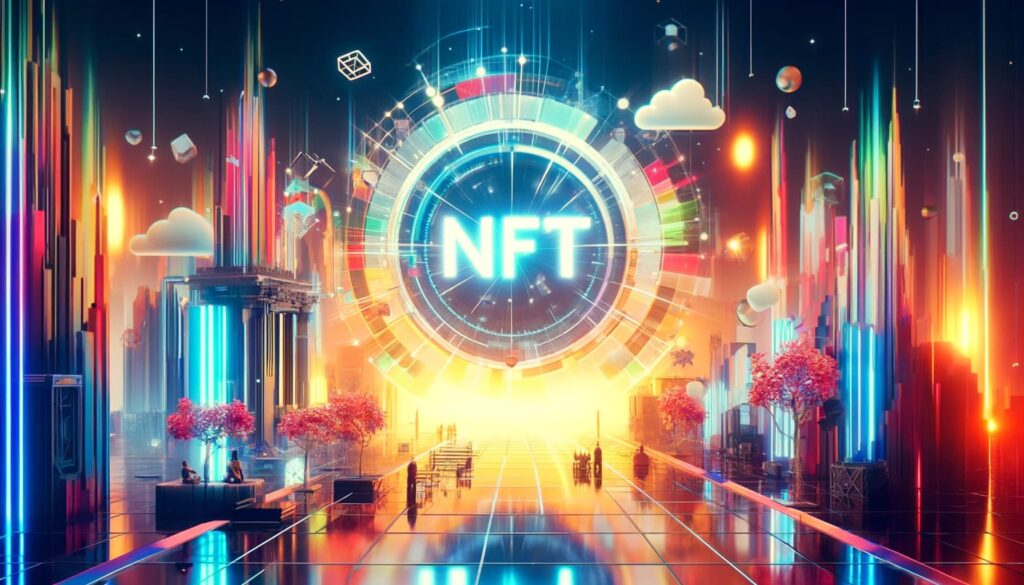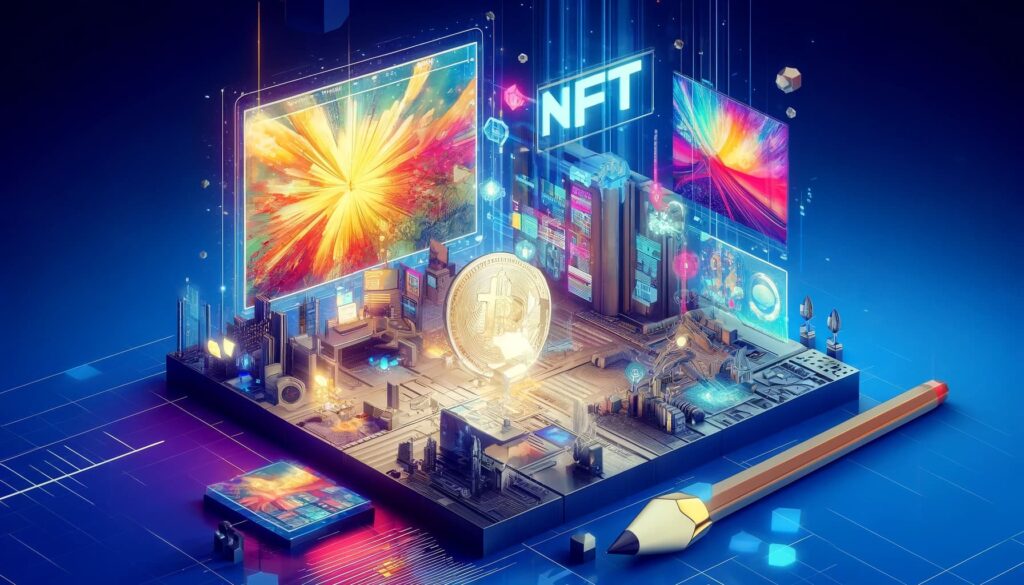Basics of Smart Contracts
Smart contracts are self-executing programs that run on blockchain networks, primarily known for their role in Ethereum. These contracts automatically enforce and execute the terms of an agreement when predetermined conditions are met, eliminating the need for intermediaries like banks or lawyers. Smart contracts consist of code (functions) and data (state) that reside at a specific address on the blockchain, ensuring security and transparency. They can manage assets, execute transactions, and facilitate decentralized applications (dApps), offering numerous possibilities for innovation across various industries.
Smart Contracts
Smart contracts are self-executing contracts with the terms of the agreement directly written into the lines of code. These digital contracts are built on blockchain technology, with Ethereum being one of the popular blockchain platforms supporting the execution of smart contracts.

When a smart contract is created on the Ethereum blockchain, it contains all the necessary code and conditions needed for the contract to be executed. The code of the smart contract is decentralized and distributed across the Ethereum network, ensuring transparency and reducing the need for intermediaries.
The unique feature of smart contracts is their ability to automatically execute the terms of an agreement, removing the need for manual intervention. By relying on specific parameters defined within the contract code, smart contracts can execute all or parts of an agreement automatically. For example, if a condition stated in the contract is met, such as a specific date or a predefined trigger event, the smart contract will automatically execute the agreed-upon actions.
Smart contracts provide a secure and efficient way to execute agreements, as their code is tamper-proof and cannot be altered once deployed on the blockchain. This ensures that the terms of the contract are upheld and eliminates the need for intermediaries to enforce the agreement.
Smart contracts are digital contracts written in code and executed on the Ethereum blockchain. They can automatically execute all or parts of an agreement based on specific parameters defined within the contract code, providing an efficient, transparent, and secure way to enforce contracts.
Definition of smart contracts
Smart contracts are self-executing agreements with predefined rules embedded in computer code stored on a blockchain network. These agreements facilitate reliable and automated transactions between multiple parties without the need for intermediaries.
Characteristics of smart contracts include transparency, immutability, and decentralized execution. With their code being stored on a blockchain, smart contracts are transparent and accessible to all network participants. Their immutability ensures that once deployed, the terms of the contract cannot be altered. Additionally, smart contracts are executed automatically without reliance on a central authority, enabling trust and eliminating the need for intermediaries.
The purpose of smart contracts is to streamline and enhance transaction processes by providing secure, efficient, and cost-effective solutions. They eliminate the need for traditional paper-based contracts and manual processing, reducing the potential for errors, delays, and disputes. Smart contracts also enhance accountability and trust as all transaction records are recorded on the blockchain, ensuring transparency for all involved parties.
Smart contracts execute on blockchain networks, utilizing the network's consensus mechanism and distributed ledger technology. This decentralized execution ensures that the contract terms are enforced automatically without any human intervention, guaranteeing fairness, accountability, and reliability. Through their adoption, smart contracts have the potential to revolutionize a wide range of industries, including finance, supply chain management, insurance, and real estate, among others.
History of smart contracts
The history of smart contracts dates back to the 1990s when Nick Szabo, a computer scientist and legal scholar, first proposed the concept. Szabo envisioned smart contracts as self-executing agreements with the terms of the agreement directly written into code, stored on a blockchain-like decentralized network.
However, it was not until 2015 that this vision became a reality with the launch of the Ethereum Blockchain Network. Ethereum's platform allows for the creation of smart contracts using its own programming language called Solidity. This breakthrough opened up endless possibilities for the implementation of smart contracts across various industries.
Smart contracts can be seen as a technological advancement that automates and eliminates the need for intermediaries in legal agreements. They represent a set of promises specified in digital form, which are automatically executed once the conditions are met. This has the potential to greatly transform industries such as finance, real estate, supply chain, and healthcare.
By using smart contracts, financial transactions can be conducted without the need for traditional banks, eliminating excessive bureaucracy and reducing costs. In the real estate industry, property ownership and transfer can be streamlined and simplified through the use of smart contracts. Supply chains can benefit from increased transparency and traceability, ensuring ethical and efficient processes. In the healthcare sector, smart contracts can securely store and transfer patient data, allowing for improved patient care and research.
Smart contracts have a rich history, starting with Nick Szabo's visionary ideas in the 1990s and coming to fruition with the Ethereum Blockchain Network in 2015. Their potential to transform various industries through automation and elimination of intermediaries is immense, promising greater efficiency, transparency, and cost savings.
Importance of smart contracts in blockchain technology
Smart contracts have emerged as a crucial component in revolutionizing the way transactions are conducted in the digital world. As an integral part of blockchain technology, smart contracts hold immense significance in ensuring transparency, security, and efficiency in various sectors. These self-executing contracts, written in code and built on decentralized networks, have the potential to automate complex processes, eliminate intermediaries, and streamline transactions. In this article, we will explore the importance of smart contracts in blockchain technology and delve into their role in transforming industries such as finance, supply chain management, real estate, and more.
How Smart Contracts Work
Smart contracts are self-executing agreements with predefined terms encoded directly onto the Ethereum blockchain. They automatically execute once the conditions specified within them are met. These contracts eliminate intermediaries, reduce costs, and enhance security since they are tamper-proof and transparent.
To create smart contracts on the Ethereum blockchain, developers use the Solidity programming language. Solidity allows them to define contract variables, functions, and events, enabling the automation of contractual obligations. Additionally, developers can incorporate business logic into these contracts.
Once written, these contracts are deployed onto the Ethereum network, which operates using the Ethereum Virtual Machine (EVM). The EVM executes the smart contracts by interpreting their bytecode. Every node on the Ethereum network possesses a copy of the EVM, ensuring that the contracts' execution remains consistent across the network.
Smart contracts interact with the Ethereum blockchain's distributed state machine. This state machine maintains a decentralized ledger, enabling all nodes on the network to reach a consensus on the current state of the blockchain. When a smart contract modifies the state of a specific account, this change becomes part of the blockchain's history, ensuring transparency and immutability.
Smart contracts on the Ethereum blockchain are written in Solidity, executed by the Ethereum Virtual Machine, and interact with the distributed state machine. This combination of technologies enables secure, transparent, and automated execution of agreements on the blockchain.
Overview of blockchain network
A blockchain network is a decentralized, distributed digital ledger that securely records and verifies transactions across multiple computers or nodes. It consists of key components such as blocks, hashes, cryptography, and peer-to-peer networks.
The blockchain network operates by grouping transactions into blocks, which are then added to the existing chain in a sequential manner. Each block contains a unique cryptographic hash that represents the previous block, ensuring the immutability and integrity of the entire chain.
One of the key functionalities of a blockchain is mining, which involves solving complex mathematical puzzles to validate and add new blocks to the chain. Miners compete for rewards, such as cryptocurrencies, for their efforts in securing the network and maintaining its accuracy and trustworthiness.
Cryptography plays a crucial role in a blockchain network by ensuring the confidentiality, integrity, and authenticity of the transactions and participants. It provides secure encryption and digital signatures for the verification process, making the network resistant to fraud and tampering.
Another important aspect of blockchain is its peer-to-peer network structure, where all participants maintain a copy of the entire blockchain. This decentralized architecture eliminates the need for intermediaries, like banks or governments, ensuring transparent and direct interaction between participants.
Moreover, blockchain networks enable the execution of smart contracts, which are self-executing agreements with predefined rules and conditions. Smart contracts, often built on platforms like Ethereum, automate and streamline various processes, facilitating secure and efficient transactions. Furthermore, blockchain-based crowdfunding has gained popularity, offering the use of Ethereum-based contracts and digital tokens as a means of raising funds and distributing ownership in a decentralized manner.
A blockchain network is a decentralized and secure system that utilizes key components like mining, hashing, cryptography, and peer-to-peer networks to provide functionalities such as transparent transaction recording, secure data storage, and automated contract execution, revolutionizing various industries and processes.
Decentralized application and smart contracts
Decentralized applications, or DApps, are software applications that operate on a decentralized network using blockchain technology. Unlike traditional applications that are run and controlled by a centralized authority, DApps rely on a peer-to-peer network, making them more transparent, secure, and resistant to censorship.
Smart contracts play a vital role in the functionality of DApps. They are self-executing contracts with predefined rules written on a blockchain. These contracts automatically facilitate, verify, and enforce the negotiation or performance of an agreement, without the need for intermediaries.
DApps utilize smart contracts to offer various financial services. For example, decentralized finance (DeFi) applications leverage smart contracts to enable peer-to-peer lending, borrowing, or decentralized exchanges. These smart contracts ensure transparency, security, and fairness in financial transactions, without relying on traditional financial institutions.
Moreover, smart contracts automate processes within DApps, eliminating the need for manual intervention. For instance, supply chain management DApps can use smart contracts to track the movement of goods, verify authenticity, and automatically trigger payments upon successful delivery. This automation reduces human error, streamlines operations, and increases efficiency.
Additionally, DApps powered by smart contracts enable interactions between devices or Internet of Things (IoT) devices. Smart contracts facilitate communication and coordination between devices, such as autonomous vehicles, smart appliances, or sensor networks, enabling seamless and secure data exchange and cooperation.
DApps leverage smart contracts to provide decentralized financial services, automate processes, and enable interactions between devices. These applications offer increased transparency, security, and efficiency, revolutionizing various sectors and redefining how we interact with technology.
Contract execution process
The contract execution process is a vital step in any business transaction or agreement. It encompasses the procedures and protocols involved in the finalization and implementation of a contract. This process ensures that all parties involved have a clear understanding of their rights, responsibilities, and obligations as outlined in the contract. From the initial negotiations to the final signing and delivery, the contract execution process plays a crucial role in ensuring the enforceability and validity of the contract. It involves a series of steps, including drafting, reviewing, negotiating, and finalizing the terms and conditions, as well as obtaining necessary approvals and signatures.
Additionally, the contract execution process may also include post-execution tasks, such as contract management, monitoring, and compliance. By following a structured contract execution process, businesses can minimize potential risks, promote transparency, and establish a strong foundation for successful collaborations and partnerships.
Components of a Smart Contract
Smart contracts are self-executing agreements with the terms of the agreement directly written into lines of code. They are executed on a blockchain, a decentralized and immutable ledger that ensures transparency and security. Let's delve into the components of a smart contract and understand their role and functionality in executing and documenting events and actions according to the terms of a contract.
1. Conditions: Smart contracts include conditions or rules that govern the agreement between parties. These conditions are written in code and are programmed to automatically execute when specific criteria are met.
2. Data: Smart contracts store relevant data related to the agreement. This could include information about the involved parties, payment details, timelines, or any other data required by the contract.
3. Digital signature: Each participant in a smart contract has a unique digital signature. This signature ensures authenticity and provides a secure way of verifying the identities of the parties involved.
4. Automation: Smart contracts are executed automatically and do not require intermediaries to oversee the process. This automation eliminates the need for a trusted third party, reduces the chances of errors, and speeds up the execution of the contract.
5. Blockchain: Smart contracts run on a blockchain, which serves as the foundation for their operation. The blockchain ensures that once a smart contract is executed and recorded, it cannot be changed or tampered with. This feature enhances the security and trustworthiness of smart contracts.
By leveraging these components, smart contracts offer several benefits. They eliminate the need for intermediaries, reducing costs and delays associated with traditional contract management. The immutability of the blockchain ensures that the terms of the contract cannot be altered after execution, enhancing transparency and trust. Furthermore, smart contracts significantly mitigate the risks of fraud and losses, as their automated execution eliminates human intervention and associated vulnerabilities.
The components of a smart contract work together to enable the execution and documentation of events and actions as per the terms of a contract. Running on a blockchain, they bring transparency, security, and efficiency to contract management, reducing intermediaries and mitigating the risk of fraud losses.
Smart contract code
Smart contract code constitutes the backbone of a computer program that enables the execution of smart contracts. These contracts are self-executing agreements with predefined rules and conditions. Unlike traditional contracts, smart contracts are implemented on a blockchain network, ensuring transparency, immutability, and automated enforcement.
To write code for a smart contract, developers employ a specialized programming language such as Solidity or Vyper. These languages allow the creation of functions that determine the contract's behavior and define the conditions to be met for its execution. These conditions are encoded into the contract code, giving it the ability to enforce its terms automatically.
When writing smart contract code, developers must carefully define variables, functions, and events, as well as implement the desired logic. They must consider the desired behavior of the contract and specify the conditions under which it should execute. For example, a smart contract for a crowdfunding campaign may define a function to accept contributions from participants and a condition that triggers the release of funds when a predefined funding goal is reached.
By incorporating specified conditions into the code, smart contracts enable trustworthiness and eliminate the need for intermediaries. The blockchain network executes the contract, ensuring that all parties adhere to the agreed terms. This automation and transparency make smart contracts an ideal solution for various applications, including supply chain management, decentralized finance, and decentralized applications (dApps).
Programming language for smart contracts
When it comes to programming languages used for writing smart contracts, there are several options available in the blockchain space. One of the most commonly used languages is Solidity, which is specifically designed for Ethereum smart contract development. Solidity is a statically-typed language with similar syntax to JavaScript and is widely supported by the Ethereum community.
Another language used for smart contract development on Ethereum is Vyper. Vyper is a high-level language that aims to prioritize security and simplicity. Unlike Solidity, Vyper restricts certain language features to reduce potential vulnerabilities in smart contracts.
Apart from Ethereum, other blockchain platforms also have their preferred programming languages for smart contract development. For example, Rust is often used for writing smart contracts on the Polkadot network. Rust is a systems programming language known for its safety, concurrency, and performance.
When it comes to Starknet, a layer-2 scalability solution for Ethereum, the programming language of choice is Cairo. Cairo is a functional programming language designed specifically for Starknet and offers a secure and efficient environment for writing smart contracts on this platform.
The choice of programming language for smart contract development varies depending on the blockchain platform. Solidity and Vyper are commonly used on Ethereum, while Rust is popular on Polkadot, and Cairo is preferred on Starknet. Each language has its own set of features and characteristics that cater to the specific needs and requirements of the respective blockchain platforms.
Smart contract platform
Smart contract platforms are decentralized networks that enable the creation, execution, and management of self-executing contracts. These platforms utilize blockchain technology to provide a transparent, secure, and efficient way to automate and enforce agreements without the need for intermediaries. With smart contract platforms, individuals and businesses can securely exchange digital assets, verify identities, and execute transactions seamlessly. Moreover, these platforms offer a wide range of use cases, including financial services, supply chain management, healthcare, and governance, among others. By removing the need for third-party intervention, smart contract platforms aim to revolutionize the way agreements are made, ensuring trust and efficiency while reducing costs and complexity.
Comparison with Traditional Contracts
Smart legal contracts are digital contracts that incorporate computer code to automate and self-execute certain terms and conditions. On the other hand, smart contracts are self-executing contracts with terms and conditions directly written into code. The key difference between the two is that smart legal contracts add legal annotations to the code, making them legally enforceable.
Code-only smart contracts refer to contracts that are purely based on computer code and do not have any legal annotations. These contracts are fully automated and their execution relies solely on the code. Ancillary smart contracts, on the other hand, are contracts that work in collaboration with other contracts. These contracts facilitate the integration of various aspects of a transaction, allowing for complex and interconnected smart contract networks.
Defining smart legal contracts in the legal industry can be challenging due to various factors. Firstly, the legal industry has traditionally relied on written contracts and may struggle to adapt to the digitized and automated nature of smart legal contracts. Additionally, the interpretation and enforcement of smart legal contracts may differ from traditional contracts, raising questions about the role of the legal system in governing these contracts.
A type of smart legal contract is a Ricardian contract. This contract incorporates both human-readable contractual terms and machine-readable code, ensuring that the legal and technical aspects are aligned. Ricardian contracts enable transparency, as the code can be audited, while also being legally enforceable.
Smart legal contracts differ from smart contracts in their legal enforceability. Code-only smart contracts rely solely on code, while ancillary smart contracts work in collaboration with other contracts. The legal industry faces challenges in defining smart legal contracts, but the concept of Ricardian contracts provides a means to bridge the gap between legal and technical aspects.
Differences between smart contracts and traditional contracts
Smart contracts and traditional contracts differ in several key aspects.
Firstly, smart contracts are programs deployed on a blockchain, whereas traditional contracts are typically signed agreements on paper or electronically. Smart contracts utilize blockchain technology to automate the execution and enforcement of the agreed terms, eliminating the need for intermediaries such as lawyers or courts. In contrast, traditional contracts require human intervention for interpretation and enforcement.
Another important distinction is the legal enforceability. While smart contracts may not necessarily be legally enforceable, smart legal contracts are designed to comply with legal requirements. Smart legal contracts combine the advantages of smart contracts with the legal framework to ensure enforceability. They integrate code with legal prose, establishing a legally binding agreement that can be enforced through traditional legal channels.
Moreover, smart contracts have the advantage of self-execution. Once the conditions specified in the code are met, the contract is automatically executed, ensuring the agreed-upon actions are promptly performed. This eliminates the risk of non-performance or delay associated with traditional contracts, where parties often rely on manual processes and enforcement mechanisms.
Smart contracts and traditional contracts differ in terms of their deployment, enforceability, and execution. While smart contracts are programs deployed on a blockchain, traditional contracts are signed agreements. Smart contracts may not always have legal enforceability, but smart legal contracts bridge this gap by combining code and legal prose. The self-executing nature of smart contracts also sets them apart from traditional contracts.
Advantages of using smart contracts over traditional contracts
Smart contracts offer several advantages over traditional contracts in various aspects like recordkeeping, autonomy, fraud reduction, fault-tolerance, and enhanced trust.
One significant advantage of smart contracts is improved recordkeeping. Traditional contracts involve manual recordkeeping processes, which are prone to human errors and can be time-consuming. On the other hand, smart contracts are executed on a blockchain, which automatically records and verifies every transaction. This digital ledger ensures accuracy, transparency, and immutability of recorded data.
Autonomy is another benefit of smart contracts. These contracts are self-executing and do not require intermediaries like lawyers or notaries. By eliminating these intermediaries, smart contracts save time and reduce costs associated with their involvement. The automation aspect also increases efficiency, as smart contracts can perform actions as soon as predefined conditions are met.
Smart contracts significantly reduce the risk of fraud. The self-executing nature of smart contracts eliminates the need to trust a counterparty, as the contract's execution is based solely on predefined rules and conditions. Any attempt to tamper with the contract or manipulate its terms is automatically detected and prevented by the blockchain's consensus mechanism.
Fault-tolerance is another crucial advantage of smart contracts. Traditional contracts may face challenges if one party fails to meet their obligations or experiences financial difficulties. In contrast, smart contracts operate on a decentralized network, ensuring fault-tolerance. The contract's terms and conditions are coded and will be executed as long as the blockchain network is functioning.
By leveraging blockchain technology's inherent characteristics, smart contracts enhance trust among parties involved. The transparent and immutable nature of the blockchain ensures that all actions and exchanges are visible to all participants, reducing the need for trust-based relationships.
Smart contracts bring multiple advantages over traditional contracts, including improved recordkeeping, autonomy, fraud reduction, fault-tolerance, and enhanced trust. These advantages can revolutionize the way contracts are executed and contribute to a more efficient and secure digital economy.


